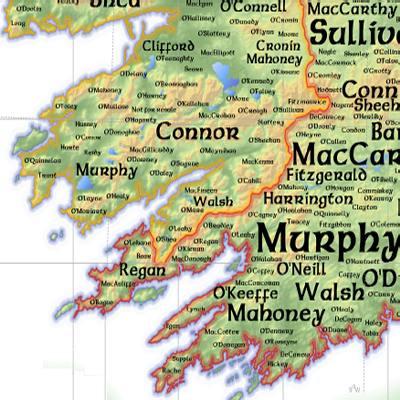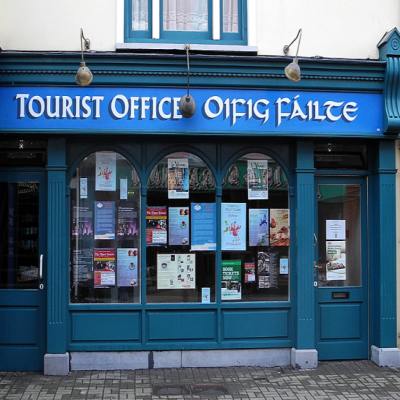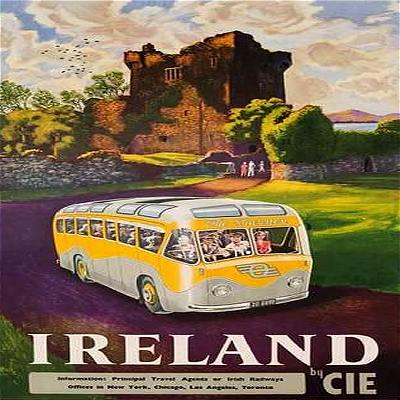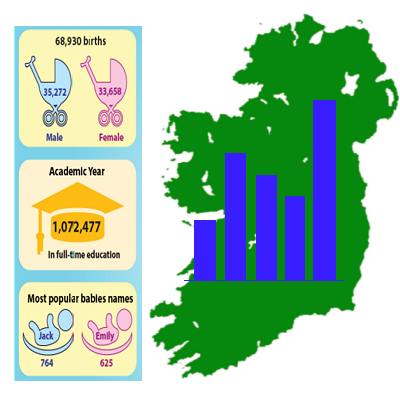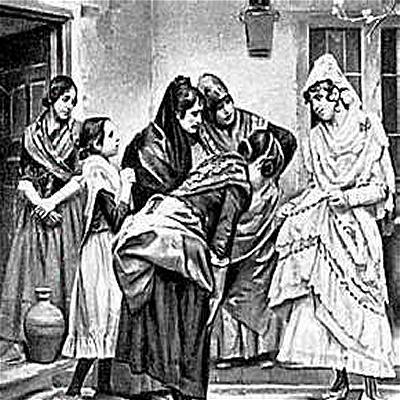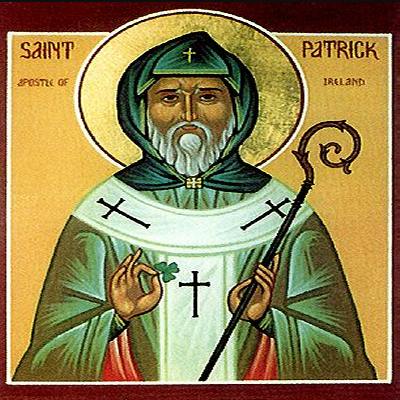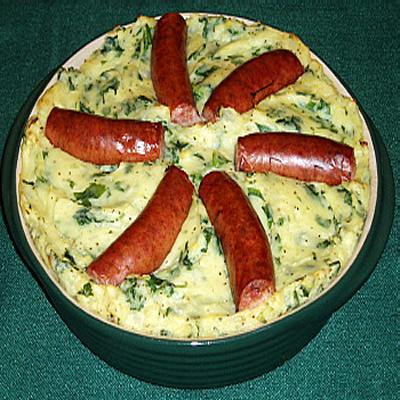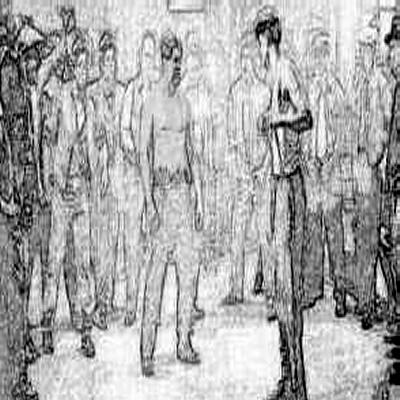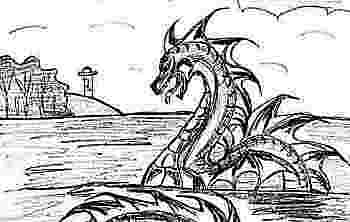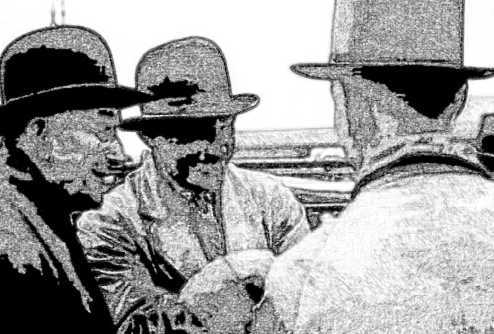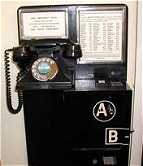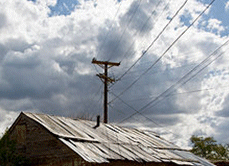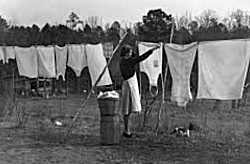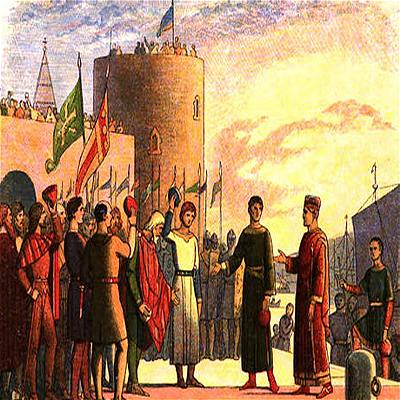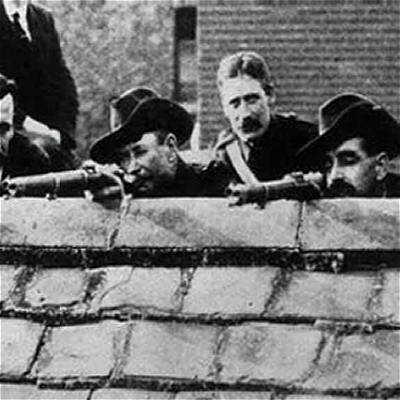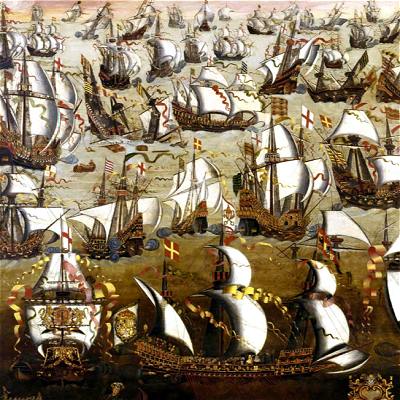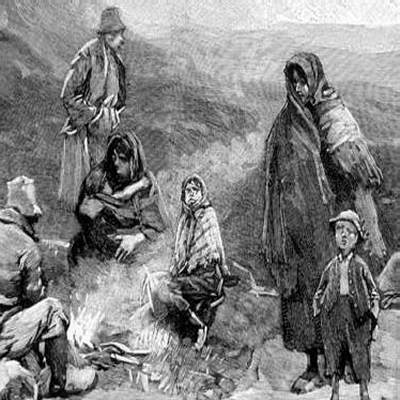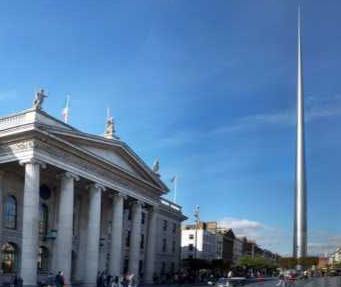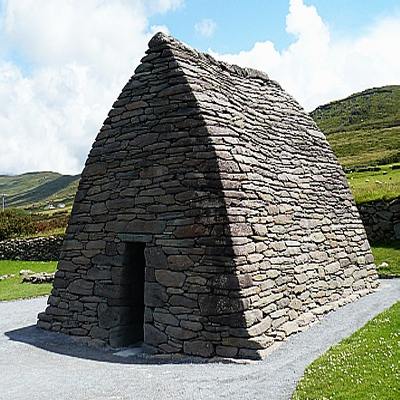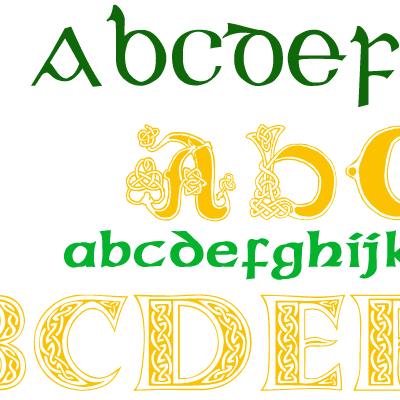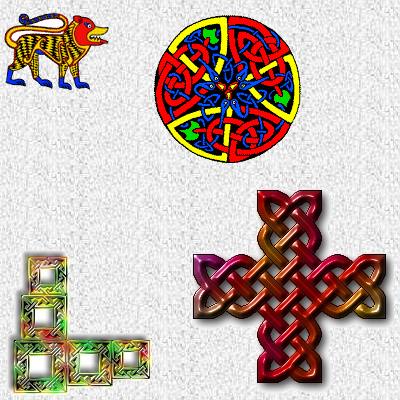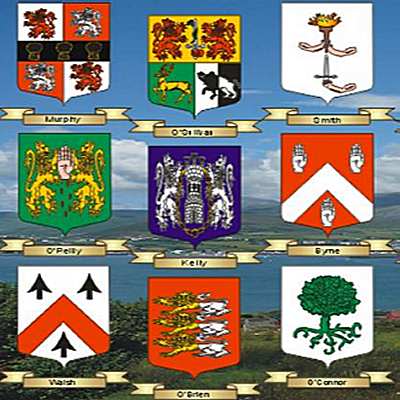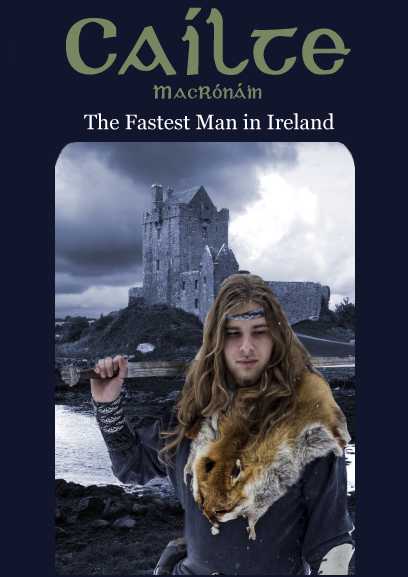
One story of Caílte tells how the Fianna were accosted by a hag when traveling the countryside. The old hag threatened them, refused to let them pass and demanded that they race her, further warning that if she defeated them then they would pay with the lives.
Clearly this was a job for Caílte MacRónáin!
Despite the hag possessing fantastic speed in her own right, she was no match for Caíltee who defeated her in the race and separated her head from her shoulders for her impudence.
But this was not the only occasion that Caílte came to the aid of his uncle, the mighty Fionn MacCumhail.
When he heard that Fionn had been taken hostage by a King in order to prevent a rebellion by the Fianna he was furious. He rampaged throughout the countryside, destroying dwellings, burning fields and separating families, such was his rage.
When he approached the Kings castle at Tara he disguised himself as a servant and again used his speed to replace the Kings sword with his own sword, that was by now nearly useless and worn as thin as a blade of grass due to his recent furious combat.
When he revealed himself to the King he demanded that Fionn be released. The King thought for a moment for a way that he may buy some time, to allow for the looming rebellion to fizzle out.
So he set Caílte a task. He demanded that Caílte gather a male and female of every type of living animal in Ireland, and that they be presented to the King in a single drove. Only then would Fionn be released.
Such a task was utterly impossible for all but the fastest man in Ireland. Caílte sped around the countryside at lightning speed, assembling the animals into a group, circling them repeatedly so they could not escape. But escape they did with Caílte having tremendous difficulty keeping the birds and land animals in the same place.
It took him the full day but he arrived back at Tara and presented the animals to the King. Still seeking more time the King ordered that the animals be housed in a hut that had nine doors and that he would inspect them the following morning.
The animals were even more agitated with being confined in such a small place so again Caílte used his incredible speed to circle the hut for the entire night, keeping the animals in place despite their attempts to escape.
When morning arrived the animals were again put before the King. Such was the noise generated by the captive creatures that the assembly became known as 'Caílte's Rabble'.
The King released Fionn immediately at which point the animals scattered again to the corners of Ireland.
Another tale tells of a King of Ireland and how he insisted that a handful of sand from the four corners of Ireland be brought to him every morning. He would then smell the sand and know if foreign invaders had landed.
There were three who offered to complete the task. The first man said that he could complete the task as quickly as a leaf falls from a tree. The second as quickly as a cat sneaks between dwellings.
But Caílte had the right answer. He said that he could complete the task as quickly as a woman changed her mind!
The King laughed heartily and was so impressed with this answer that he immediately granted the task to Caílte.
Caílte smiled back at the King and held out his hand. He then set four piles of sand onto a table. While the King had been laughing Caílte had already completed the task, such was his incredible speed!
In his older years Caílte and Oisin both travelled Ireland with the newly arrived Saint Patrick.
They regaled Patrick with tales of Fionn MacCumhail and of the other fantastic characters of old Ireland. These were among the moments when the new world of Christian Ireland would overtake the age of the legends and myths of heroes and villains.
It was said that Caílte and Oisin became very bitter about the passing of this era, with the glories of the past fading away.
In the poem 'The Lamentation of Oisin after the Fenians' their feeling are laid bare:
I am without mirth, without the chase, without music,
Amidst the monks and clerics.
Ever groaning and tearfully weeping,
Begging the shelter of the mean clergy...
Oft have I seen one feast alone
In the dwelling of the King of the Fenians,
Better than all that Patrick ever had
Or the whole body of the psalm-clerics.
And so it was that Caílte MacRónáin lived to see the very end days of the Irish mythic era. But not before his legendary speed had marked him as the fastest man in all Ireland.

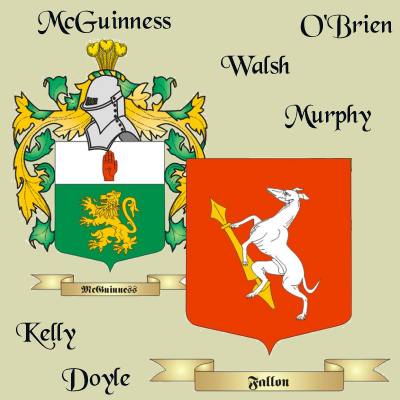 Your Family Crest
Your Family Crest
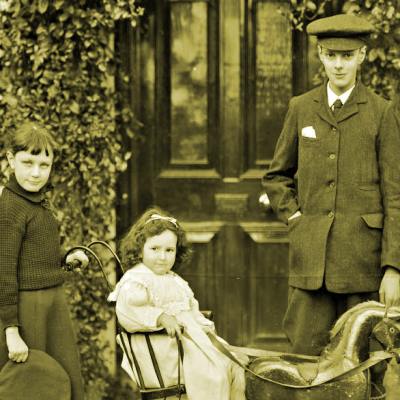 Irish Roots Search
Irish Roots Search